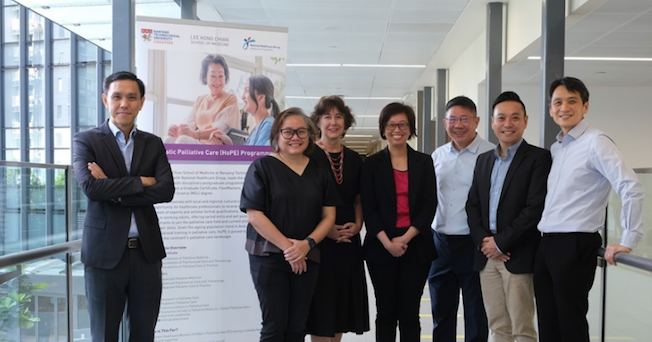
To meet the urgent need of upskilling healthcare professionals in end-of-life care, Nanyang Technological University, Singapore (NTU Singapore) and the National Healthcare Group (NHG) have launched a new Master of Science (MSc) in Holistic Palliative Care (HoPE).
The postgraduate programme is developed and delivered by the Palliative Care Centre for Excellence in Research and Education (PalC), a collaboration between NTU’s Lee Kong Chian School of Medicine (LKCMedicine), NHG and Dover Park Hospice to spearhead palliative care research and education.
The new MSc in Holistic Palliative Care is part of NTU’s FlexiMasters programme that offers a flexible and ‘stackable’ learning pathway, from a Graduate Certificate to a FlexiMasters and finally to a full Master of Science degree.
With its flexible structure, the MSc in Holistic Palliative Care is the first-of-its-kind postgraduate programme in Asia for healthcare professionals keen on upskilling their knowledge in palliative care on a part-time basis, while allowing them to pursue their existing work and family commitments.
The MSc in Holistic Palliative Care is designed for working healthcare professionals, such as doctors, nurses and allied health professionals. It supports the growing demand for professional training and manpower development in the palliative care industry, such as palliative care for terminal and end-stage chronic disease patients in hospices, at the patient’s home, and in healthcare institutions.
To create a programme attuned to Singapore’s evolving healthcare system and the learning needs of the healthcare community, the curriculum for the MSc in Holistic Palliative Care was developed by PalC in consultation with Singapore’s Ministry of Health, Agency for Integrated Care, Singapore Hospice Council and an international expert, along with focus group discussions with 60 healthcare professionals. Their feedback formed the basis of the programme’s multidisciplinary focus on psychosocial aspects of palliative care as well as its flexible structure.




